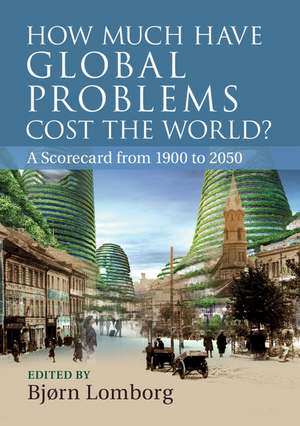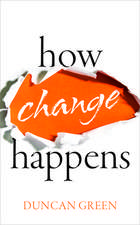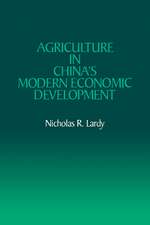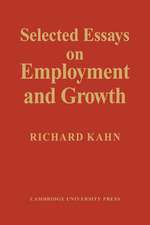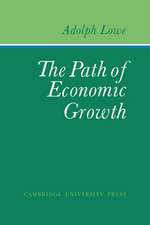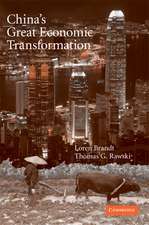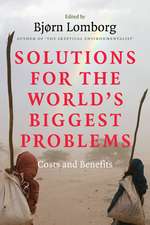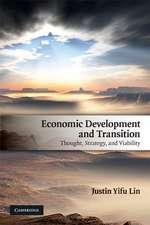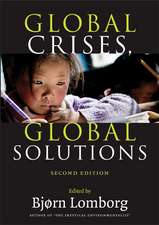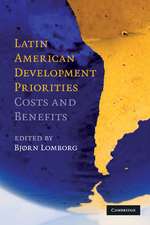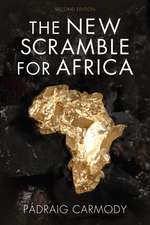How Much Have Global Problems Cost the World?: A Scorecard from 1900 to 2050
Editat de Bjørn Lomborgen Limba Engleză Paperback – 9 oct 2013
| Toate formatele și edițiile | Preț | Express |
|---|---|---|
| Paperback (1) | 253.16 lei 43-57 zile | |
| Cambridge University Press – 9 oct 2013 | 253.16 lei 43-57 zile | |
| Hardback (1) | 794.43 lei 43-57 zile | |
| Cambridge University Press – 9 oct 2013 | 794.43 lei 43-57 zile |
Preț: 253.16 lei
Nou
Puncte Express: 380
Preț estimativ în valută:
48.46€ • 52.65$ • 40.73£
48.46€ • 52.65$ • 40.73£
Carte tipărită la comandă
Livrare economică 21 aprilie-05 mai
Preluare comenzi: 021 569.72.76
Specificații
ISBN-13: 9781107679337
ISBN-10: 1107679338
Pagini: 401
Ilustrații: 172 b/w illus. 118 tables
Dimensiuni: 175 x 246 x 18 mm
Greutate: 0.79 kg
Editura: Cambridge University Press
Colecția Cambridge University Press
Locul publicării:New York, United States
ISBN-10: 1107679338
Pagini: 401
Ilustrații: 172 b/w illus. 118 tables
Dimensiuni: 175 x 246 x 18 mm
Greutate: 0.79 kg
Editura: Cambridge University Press
Colecția Cambridge University Press
Locul publicării:New York, United States
Cuprins
Introduction Bjørn Lomborg; Executive summaries; 1. Air pollution Guy Hutton; 2. Armed conflicts S. Brock Blomberg and Gregory D. Hess; 3. Climate change Richard S. J. Tol; 4. Ecosystems and biodiversity Anil Markandya and Aline Chiabai; 5. Education Harry Anthony Patrinos and George Psacharopoulos; 6. Gender inequality Joyce P. Jacobsen; 7. Human health Dean T. Jamison, Prabhat Jha, Varun Malhotra and Stéphane Verguet; 8. Malnutrition Sue Horton and Richard H. Steckel; 9. Trade barriers Kym Anderson; 10. Water and sanitation Marc Jeuland, David Fuente, Semra Özdemir, Maura Allaire and Dale Whittington; Index.
Recenzii
'For a volume covering such a large number of grim subjects, ranging from climate change and violent conflict to loss of bioversity and malnutrition, this is a surprisingly uplifting read. While mankind has succeeded in creating some depressingly disastrous social, natural and humanitarian disasters, we also have the power to alleviate and overcome these self-inflicted challenges. Bjorn Lomborg reminds us that for every part of mankind that can destroy, there is also one part that can create.' Tilman Brück, Director, Stockholm International Peace Research Institute (SIPRI)
'This 150-year view of humanity's biggest challenges, measured in economic terms, gives unique data on the globe's important issues to students, teachers and the general public. Ultimately, it affords everyone the opportunity to answer with facts the questions of humanity's scorecard: are we doing better or worse? Overall, there is more good news than bad, but we could still do better.' Per Pinstrup-Andersen, H. E. Babcock Professor of Food, Nutrition and Public Policy and J. Thomas Clark Professor of Entrepreneurship, Cornell University
'This book is a bracing tonic. An excellent survey for students, teachers and the general public with a wealth of thought provoking material. If you want to know how the world is doing, and get hard, comparable numbers to back it up, this is where to go.' Alix Peterson Zwane, Executive Director, Evidence Action and the Deworm the World Initiative, and former Senior Program Officer, Bill and Melinda Gates Foundation
'This 150-year view of humanity's biggest challenges, measured in economic terms, gives unique data on the globe's important issues to students, teachers and the general public. Ultimately, it affords everyone the opportunity to answer with facts the questions of humanity's scorecard: are we doing better or worse? Overall, there is more good news than bad, but we could still do better.' Per Pinstrup-Andersen, H. E. Babcock Professor of Food, Nutrition and Public Policy and J. Thomas Clark Professor of Entrepreneurship, Cornell University
'This book is a bracing tonic. An excellent survey for students, teachers and the general public with a wealth of thought provoking material. If you want to know how the world is doing, and get hard, comparable numbers to back it up, this is where to go.' Alix Peterson Zwane, Executive Director, Evidence Action and the Deworm the World Initiative, and former Senior Program Officer, Bill and Melinda Gates Foundation
Descriere
Bjørn Lomborg invites leading economists to provide an innovative 150-year view of humanity's biggest challenges, measured in economic terms.
